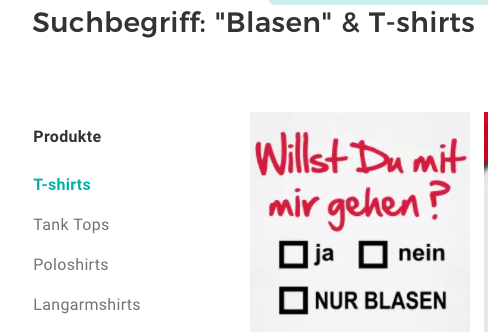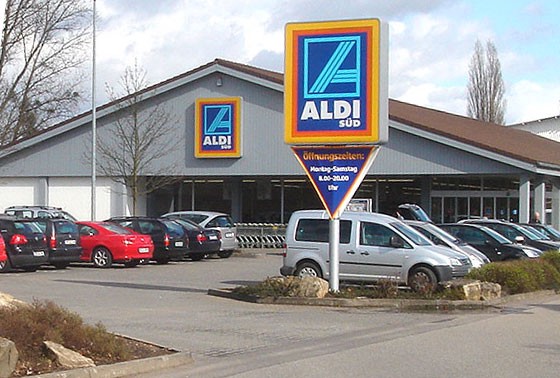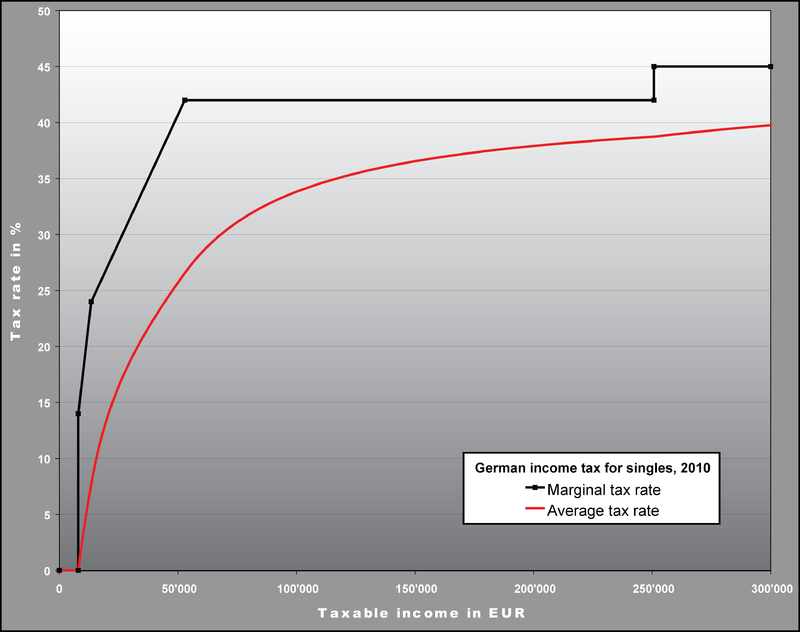Is Germany Blowing It?
Deutschland über us.

“BOOM + ELECTION = BUBBLE,” proclaims University of Dortmund economics and journalism professor Henrik Müller in a provocative op-ed in Der Spiegel this week.

Go ahead, dude, rub it in: The German economy, thanks to either its people’s inherent genius or their indiscriminate Europe-wrecking penny-pinching, is allegedly booming — or, to use the German, it boomt. “Employment, state revenue, exports, corporate morale — all at record highs,” Müller explains. “Real estate prices are rising rapidly, both in large cities and rural areas. The construction sector is expanding.” GREAT.
But wait! Economists, “largely in agreement,” warn that German companies have been working beyond their production capacities for some time, and that the economy is, and will remain, überhitzt (OO-bur-HITST), or “overheated.” Yes, Müller allows, this boom could last for years. “But that doesn’t make it any less dangerous,” he warns. “For the longer the boom, the harder the bust.” Unless someone (possibly someone in a brightly colored pantsuit?) does something, the German economy is headed for a bubble.
The same mechanics are always at work: In times of pronounced boom, economies get warped. Over-optimistic expectations provoke investments that later prove to be unsustainable in the long term. Overvalued financial and real estate markets make citizens and businesses blind to risks — which comes back to haunt them when values plummet. Then comes the crash.
The problem, says Müller, is that Germany’s in an election year, and apparently nobody’s eager to campaign on the platform WE MUST STOP THIS IMPRACTICAL BOOM — even though, from at least this outsider’s perspective, that would be the single Germanest campaign slogan in the history of Menschheit.
Müller’s is your standard-issue mildly interesting Krugmanian/Keynesian boilerplate, just in BUSINESS GERMAN, so automatically more authoritative-sounding. But its interest is compounded for American observers (GET IT? MONEY JOKE!) when we consider the multitudinous cross-cultural delights that lurk inside.
First, the German word for “election” is der Wahlkampf (VAHL-komff), which literally means “vote fight,” and who doesn’t enjoy the mental picture of she who so recently jilted us in the boxing ring, kicking the asses of a bunch of balding dudes in tiny glasses? I bet she’d have a special boxing suit jacket made, or perhaps one in every color, and they’d all look amazing.

Second, the German word for “bubble,” as you can see in the Spiegel headline, is die Blase (BLAH-suh), which, coincidentally, is the same as the word for “bladder,” which for anyone who has ever read Little House in the Big Woods, makes perfect sense.
But Blase is also the nominalization of the verb blasen, which means “to blow,” which, as in English, carries meanings in both the bubble-based and fellatial sense. To say blow me in German, for example, you say Blas’ mir einen, which literally means blow me one, BUT — as my flatmate Henrik was clear to point out when I asked him for this very translation in 1997 — is not to be used as an insult, but simply a request.

Speaking of which: Müller suggests that the only way to avoid the bubble is to do the economic equivalent of stopping mid-hookup to inquire about your paramour’s most recent HIV test and the whereabouts of his or her prophylactics. And, even though it’s the 90s and everybody cool does it, that conversation is a 100-percent boner killer, with “boner” here being Business German for “elections.” (Let it not be said that I don’t put the ‘shaft’ in Wirtschaft.)
Anyway, according to Müller, who I am sure definitely supports this extended sex metaphor (and I’m just getting started), the German-economy-saving equivalent of Where the Gummis at? is to raise federal interests rates in the name of gegensteuern (GAY-gun stoy-urn), which technically means “countersteering,” but also carries within it the word for “to tax,” steuern—which also means “to steer,” “to pilot,” “to govern” and “to regulate,” which is where the second part of Müller’s boner-ruining plan comes in.
For, he argues, another crucial way to prevent a bubble is — Paul Ryan, you might want to look away — to steer the German economy in the right direction by curbing demand, by raising individual income taxes on the middle class specifically. WUT? IS THAT EVEN LEGAL TO WRITE? “You read me right,” he assures me. “To only increase taxes on the wealthy (as the Left demands) would bring little stability, because these additional burdens would hardly slow down high earners’ lust for consumption.”

Wait, so taxing the bejeezus out of the rich doesn’t stop them from buying shit? But that’s not even his point. His point is that they have to get ordinary Germans to stop buying so much shit. But this suggestion is the electoral equivalent of not just asking where the rubbers is, but of explaining in detail the symptoms of advanced gonorrhea. Or, in the Business German: “Politically, this idea is not feasible.”
Some perspective: Current German income tax rates range from zero to 45 percent of one’s taxable income, with a “middle-class” earner of about 50,000 Euros per year taxed at what Americans would see as an extortionate 42 percent. (Although, because university is free, it just might end up balancing itself out, considering.) German goods also include VAT in all prices (be prepared for an earful if you ask about the American practice of adding on sales tax at the register), and Germans pay a set 8 percent of their pre-tax salary toward the Krankenkasse, or national health insurance Koffer.

So on the one hand, you can see why anyone who wants to win an election isn’t campaigning on a promise to raise those rates even higher. “It’s logical,” agrees Müller, “that nobody wants to be the buzzkill — the person who turns the music down and the lights up.”
On the other hand, you’d think that if there was one thing Germans would be great at, it would be ruining a party.
There’s no quicker and more efficient way to “put the brakes,” as Müller says, on a great time than to tell a joke to a German that involves any measure of sarcasm or exaggeration — you can almost hear the record-scratching sound, as all merriment halts in the afterglow of the universal German anti-mating call of Ektually, zet’s not right.
Also, honestly, if you’re already paying 42 percent of your income toward your country’s staggering array of immaculate free parks, roads, bridges, schools, universities, doctors, spa cures and day cares, and you do so out of a completely different understanding of what it means to be in a free society, what’s another few hundred Euros to insure against den Crash? I mean, Germans insure everything else on God’s green earth, why not their economy?
It appears to me, a seasoned economist if ever there were one, that the major German political parties’ resistance to running on a very Teutonic cautious boom-dampening may be a result of GLOBALISM RUN AMOK!!! If the Paris climate agreement, a.k.a. The One-World Government of Gun Taking and the Antichrist masquerading as “people who understand scientific fact,” can infect America despite our brave President’s ability to see the TRUTH, what’s to stop globalism from operating in reverse? The Information Superhighway runs both ways, after all: If the Elitist Cosmopolitan Polyglots can infect us with their bogus “climate stuff,” clearly we can also infect them with our ridiculous belief that unfettered Capitalism is virtuous.

Yes, Germany may think it’s broken up with us, but not before the metaphorical mutual Blasen of our years as super close allies left a little something in its wake: It appears the worst aspect of American influence has lingered in Germany, like if Ayn Rand were an STD.
As Müller suggests, if the politicians don’t start counter-steering the ship, Germany may have already blown it. (Or, at any rate, it comforts me to think so, and have a little Schadenfreude in my continued time of heartbreak.)
